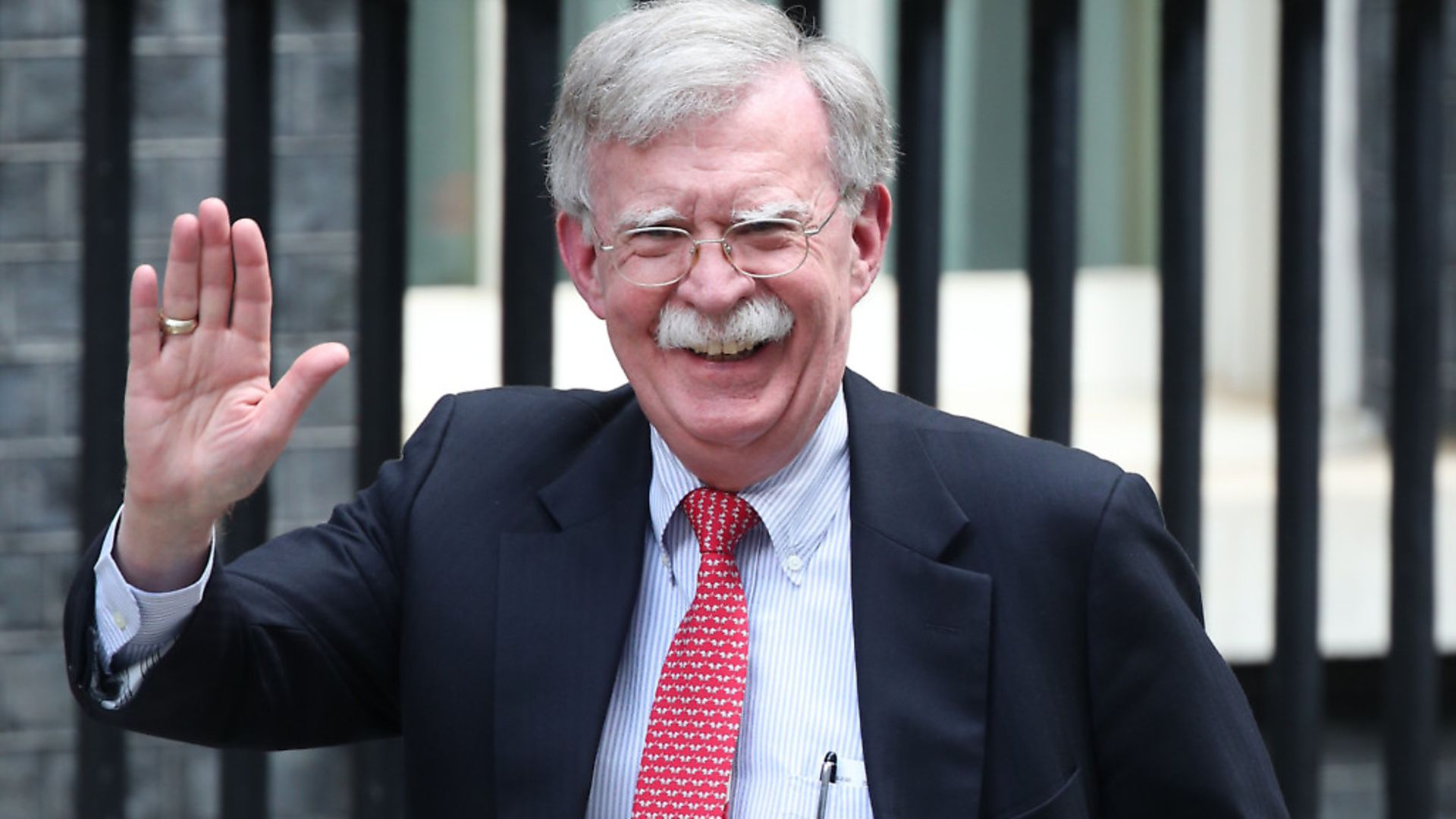
A former top American diplomat has warned against ‘oversimplifying’ matters after a US national security adviser claimed that the UK would be ‘first in line’ for a trade deal.
Donald Trump’s national security adviser John Bolton made headlines after a visit to Number 10 when he stated that a bilateral agreement could be agreed “very quickly, very straightforwardly”. He proposed addressing the deal sector by sector, adding that the UK is “constantly at the front of the trade queue”.
Bolton, who is known for his strongly rightwing views and his “America first” stance, is supportive of Brexit.
But Lewis Lukens, a former US deputy ambassador to the UK said that Bolton was oversimplifying the discussion on trade deals.
Speaking to LBC’s Iain Dale, he said: “I think he’s oversimplifying the ease and rapidity of coming to a trade agreement. Even if you’re allowed to break it down – which is in question – sector by sector, congress still has to approve any trade agreement, and it will be a long, and complicated, and difficult process.”
He added: “I would be wary of politicians oversimplifying the process, because it is a complicated and long process to come to a trade agreement.”
Dale asked why it should be so complicated, when Australia managed to get a US trade deal within 15 months, but Lukens pointed out that the UK has a “much greater” level of trade with the US.
“I don’t see this happening in 15 months,” he added. “It’s too complicated and in the United States there’s too many interests at stake.”
The suggestion of doing a sector-by-sector trade deal has come under scrutiny, but Lukens suggested it was a good plan to get “a quote unquote quick win” by leaving difficult sectors such as agriculture, pharmaceuticals and healthcare until later.
But he warned that the Good Friday Agreement must remain untouched if a trade agreement is to pass in congress, and that Brexit must be “defined” before talks can move beyond “scoping talks”.
Until Brexit is defined, and the United States knows what the UK’s relationship with the EU will look like, there’s no point talking about the details of a trade agreement, because it all hinges on what that UK-EU relationship looks like,” he said.








